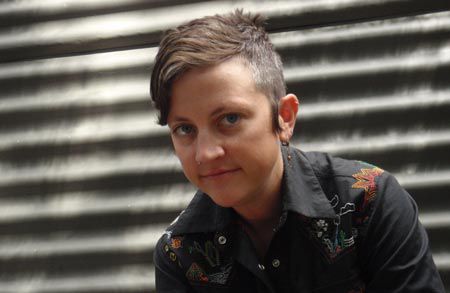Jessica Au chats to Jennifer Mills about her new book,

There’s a beautiful otherworldliness to this collection – a young architect endlessly perfecting plans for a gargantuan city, Russian pilots charged with controlling the weather. Why this gentle surrealism?
Short stories are far more playful than longer form writing, and since they don’t have to have as much structural integrity, I can experiment to my heart’s content. I really enjoy the possibilities of playing with suspension of disbelief, the liminal space between realism and surrealism. Too much realism can weigh you down with all sorts of obligations. I love the way short stories can float in a place of uncertainty; the best ones leave their essences unspoken.
Having said that, the stories you mention are based in fact – China’s ghost cities and Russian cloud seeding are both real phenomena – so perhaps the world is just a weird place and it’s my job to notice it.
*You switch between markedly different characters in this book – do you feel there’s a degree of imaginative responsibility for writers to inhabit varied voices? *
I wouldn’t dare decide for anyone else what their responsibility is, since I think it varies from writer to writer. Some people aim to perfect one kind of story; I aim to stretch myself. It’s not so much a choice as a tendency to lose interest when I realise I am writing something too familiar; for me, part of the pleasure of writing is metamorphosis. I’m driven by curiosity. These stories were written over seven very restless, very curious years.
There’s such a strong, staying lyrical quality to your writing – how important is mood and tone for you?
I am not really conscious of pulling this off – I would certainly like to know how to replicate it – but I think with short stories in particular, you have so little space you really have to do a lot with a few suggestive brushstrokes.
Perhaps it comes back to that sense of unspoken or ambiguous drama. I tend to be interested in people who are lost, trapped, or a little reality-challenged. Decisions around tone are very wrapped up with finding the voice of a particular story, which comes back to character. Sometimes that’s brutal and creepy and sometimes it’s sad. Putting the collection together I was more conscious of tone, and how much I used moments of humour and lightness to sweeten the flow.
You’ve lived in Russia and Mexico, as well as completing an Asialink residency in Beijing. I’m curious about how the details we absorb on our travels emerges later in fiction. Have any of your experiences abroad found their way into your stories?
Absolutely. I only visited Russia for three weeks but am still writing about it. Many of my stories come from observation. ‘Aperture’ was written after watching a couple on a bad date at the Confucius temple in Beijing. ‘The Jungle will Swallow Anything’ came to me whole when I was sitting in the back of a truck zooming down the highway in Mexico and glimpsed a small girl sitting by the roadside. Others grow more slowly, begin as daydream speculations, and collect images along the way. Encounters with the strange are vital for stimulating the imagination, I think. It’s not simply about gathering authentic detail, it’s about the way the broad world pushes you to absorb its variety without judgement. I love traveling and writing for the same reasons – they both stretch the mind in unexpected ways.
Apart from
They are all very different processes for me. I usually know from the beginning whether an idea is a novel, a short story or a poem. Novels are slow and difficult and frustrating, they have a big gravitational field that tends to suck everything else in. Poetry is less deliberate, something that happens to me; it tends to begin with an almost musical experience of language. Short stories sit somewhere between – a flush of connected images, a single situation, a fragment of dialogue and you’re away.
They still need months of work to get right, of course, but I love that you can hold the whole shape in your head at once. In fact I find short stories so pleasurable that I use them to escape my other writing.
Finally, tell us about this amazing cover – how did you find the design process from the writer’s seat?
UQP has always managed to get my covers right! This one is by Design by Committee who also did my first novel. Neither they nor my publisher knew about my love of natural history museums and taxidermy (admittedly, there are a number of dead animals in this collection). The dangling horse is Novecento, by artist Maurizio Cattelan, whose work has an anarchic, disruptive humour and mournfulness which I think resonates well with my own. UQP and I went back and forth a little bit on the exact shade of yellow but the concept was right from the start, and I take no credit for my good fortune.
The Rest is Weight
Read the first three stories
A book by Booki.sh


